thematic category
Saturday, January 21, 2006
The Making of A Terrorist
In making mention of freedom fighters, all of us are privileged to have in our midst tonight one of the brave commanders who lead the Afghan freedom fighters — Abdul Haq. Abdul Haq,we are with you…
It was in March 1986, the Republican President Ronald Reagan, in his remarks at the Annual Dinner of the Conservative Political Action Conference, warmly welcomed and introduced Abdul Haq with high respect.
Abdul Haq and other people fighting for the freedom of their country were, Reagan said, “the moral equal of our Founding Fathers and the brave men and women of the French Resistance.”
A couple weeks later, Margaret Thatcher invited Abdul Haq to Downing Street. Again he was special in the sense that Thatcher had never want to meet other freedom fighters, such those in Palestine and South Africa, unless they stopped their violence strategy. In the case of Abdul Haq, such condition was not required.
Who was Abdul Haq? Why was he so special in the West?
In his heyday, he was effective commander, a devout Muslim and a proud Pashtun. He was once a hero in 1980s Afghanistan War and then unfortunately executed by Taliban in 2001. The regime accused him as “a spy of American and British governments.”
We can spend a whole day to discuss him, in this brief space however I would like only to remind us what he had done before he was invited by Reagan and Thatcher.
In September 1984 he designed bombing at Kabul airport in which 28 people were reported to have died. Many of them were innocent relatives of students preparing to fly to the Soviet Union and about 15 were military officers. Why did he kill civilians? To the media, he said he wanted to warn “people not to send their children to the Soviet Union”.
With regard to another long-range rocket at Kabul which had also hit civilians, he defended himself this way, “I have to free my country. My advice to people is not to stay close to the government. If you do, it's your fault. We use poor rockets; we cannot control them. They sometimes miss.”
His cause and logic are really, if I may call it, proto-terrorist idea: achieving a political agenda to free a country from the assumed “colonization” and, more importantly, targeting civilian — compare it with the definition preferred by the US Department of State,
In Muslims history, Abdul Haq may be not the first one embracing such idea. Algerian FLN during 1950s, who killed many French civilians, or PLO during 1970s, used the similar logic.
However, there are significant differences between those actions in 1950s to 1970s and Afghanistan case. Firstly, targeting civilian had never been justified by international political leaders and their actions were condemned.
Secondly, they did fight against real colonial rulers. Algerian FLN were struggling against French; while PLO are fighting against Israeli occupation in Palestine.
Thirdly, it is local struggle and by local fighters. Both in Algeria and Palestine, there were no internationally imported fighters.
The Afghanistan case marked a beginning of global terrorism in two main features: Firstly, it was war against indirect colonization, an imagined colonization. They fought against fellow nations supposed to be a puppet of foreign power — Barbrak Karmal who was supported by Moscow.
Secondly, targeting civilian was no longer condemned. Abdul Haq who killed civilians was welcomed and praised by American president as “freedom fighter”, “brave commander”, and was on equal standing with American founding fathers.
More than welcome remarks, according to Mamdani (2002), the US military spend 660 millions dollar in fiscal 1987 to support the mujahidin and brought almost 100.000 Muslims from around the world to engage the war.
Now, let consider those points to read current terrorism: what now called Muslim terrorist is necessarily individual like Abdul Haq. The difference, however, Abdul Haq was warmly welcomed and called “freedom fighter” by an American president; while his “students”, Muslims radicals mostly graduated from Afghanistan war, are called terrorists by another American president.
Reading terrorism phenomena in this way, we are really faced to pure political and secular making of terrorism. Religion, if any, was only a tool. To gain support from Muslim countries, Muslims were taught that Aghanistan War was a holy war against atheist Soviet; while America, the non-Muslim ally, is “in God they trust”.
If we realize the close connection between radical Muslims and the US government in the past, morally and financially, and now we find them are cursing each other, it will be fool of us to involve in their “bussiness”.
What we — non-involving Muslims and Americans — need is asking them to play their own game on their own field. If I meet them, I would say “Don’t hijack Islam for you political goal, and don’t hijack democracy and freedom to intervene sovereign nations!”
It was in March 1986, the Republican President Ronald Reagan, in his remarks at the Annual Dinner of the Conservative Political Action Conference, warmly welcomed and introduced Abdul Haq with high respect.
Abdul Haq and other people fighting for the freedom of their country were, Reagan said, “the moral equal of our Founding Fathers and the brave men and women of the French Resistance.”
A couple weeks later, Margaret Thatcher invited Abdul Haq to Downing Street. Again he was special in the sense that Thatcher had never want to meet other freedom fighters, such those in Palestine and South Africa, unless they stopped their violence strategy. In the case of Abdul Haq, such condition was not required.
Who was Abdul Haq? Why was he so special in the West?
In his heyday, he was effective commander, a devout Muslim and a proud Pashtun. He was once a hero in 1980s Afghanistan War and then unfortunately executed by Taliban in 2001. The regime accused him as “a spy of American and British governments.”
We can spend a whole day to discuss him, in this brief space however I would like only to remind us what he had done before he was invited by Reagan and Thatcher.
In September 1984 he designed bombing at Kabul airport in which 28 people were reported to have died. Many of them were innocent relatives of students preparing to fly to the Soviet Union and about 15 were military officers. Why did he kill civilians? To the media, he said he wanted to warn “people not to send their children to the Soviet Union”.
With regard to another long-range rocket at Kabul which had also hit civilians, he defended himself this way, “I have to free my country. My advice to people is not to stay close to the government. If you do, it's your fault. We use poor rockets; we cannot control them. They sometimes miss.”
His cause and logic are really, if I may call it, proto-terrorist idea: achieving a political agenda to free a country from the assumed “colonization” and, more importantly, targeting civilian — compare it with the definition preferred by the US Department of State,
In Muslims history, Abdul Haq may be not the first one embracing such idea. Algerian FLN during 1950s, who killed many French civilians, or PLO during 1970s, used the similar logic.
However, there are significant differences between those actions in 1950s to 1970s and Afghanistan case. Firstly, targeting civilian had never been justified by international political leaders and their actions were condemned.
Secondly, they did fight against real colonial rulers. Algerian FLN were struggling against French; while PLO are fighting against Israeli occupation in Palestine.
Thirdly, it is local struggle and by local fighters. Both in Algeria and Palestine, there were no internationally imported fighters.
The Afghanistan case marked a beginning of global terrorism in two main features: Firstly, it was war against indirect colonization, an imagined colonization. They fought against fellow nations supposed to be a puppet of foreign power — Barbrak Karmal who was supported by Moscow.
Secondly, targeting civilian was no longer condemned. Abdul Haq who killed civilians was welcomed and praised by American president as “freedom fighter”, “brave commander”, and was on equal standing with American founding fathers.
More than welcome remarks, according to Mamdani (2002), the US military spend 660 millions dollar in fiscal 1987 to support the mujahidin and brought almost 100.000 Muslims from around the world to engage the war.
Now, let consider those points to read current terrorism: what now called Muslim terrorist is necessarily individual like Abdul Haq. The difference, however, Abdul Haq was warmly welcomed and called “freedom fighter” by an American president; while his “students”, Muslims radicals mostly graduated from Afghanistan war, are called terrorists by another American president.
Reading terrorism phenomena in this way, we are really faced to pure political and secular making of terrorism. Religion, if any, was only a tool. To gain support from Muslim countries, Muslims were taught that Aghanistan War was a holy war against atheist Soviet; while America, the non-Muslim ally, is “in God they trust”.
If we realize the close connection between radical Muslims and the US government in the past, morally and financially, and now we find them are cursing each other, it will be fool of us to involve in their “bussiness”.
What we — non-involving Muslims and Americans — need is asking them to play their own game on their own field. If I meet them, I would say “Don’t hijack Islam for you political goal, and don’t hijack democracy and freedom to intervene sovereign nations!”
Posted by Arif Maftuhin at 11:01 PM
Subscribe to:
Post Comments (Atom)



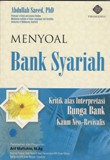

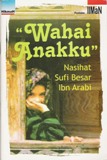
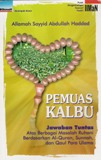
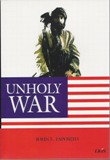
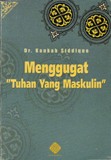

0 comments:
Post a Comment